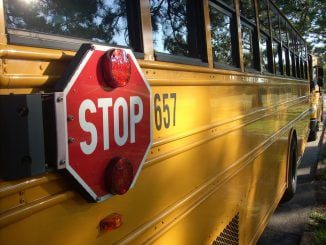
RALEIGH — With Gov. Roy Cooper’s school reopening announcement allowing districts to reopen under Plan C, full remote learning, parents who have children with special needs say they are being left behind.
Two families agreed to speak to North State Journal about the negative impact remote learning is having on their children and their Individualized Education Plans (IEPs). The names of the parents have been changed to protect the identities of their children.
An IEP is exactly what it sounds like: a written plan specific to each eligible public-school child who qualifies for special education interventions. Those interventions can include, but are not limited to, services such as audiology, counseling, occupational therapy, orientation and mobility services, physical therapy, psychological services and speech-language pathology services.
To be eligible under the Individuals with Disabilities Education Act (IDEA), a team of subject experts, teachers, parents and others first have to determine if the student has a disability and then if that disability will need special education and associated services.
While the definition may sound straightforward, no two IEPs are alike, and many require multiple services and interventions. The process is often frustrating and can sometimes take years to get the right combination of services in place.
Sam and his family moved to North Carolina last year and says his 10-year-old daughter, who was diagnosed to be on the Autism spectrum, has in the past received services for math, reading, speech assistance, as well as physical and occupational therapy. He said they were supposed to meet with school officials in Brunswick County in March regarding her IEP, but then came the governor’s order that all schools be closed. Sam said has not heard from the district about his daughter’s IEP since.
“Everything is a waiting list for these children. It’s a waiting list to get evaluated, a waiting list to see the specialist to get diagnosed properly, you know?” Sam said. “These kids are already at a deficit, and now, with this pandemic, you’ve got these schools that are not communicating anything to the parents who have children with special needs.”
Accessibility to teachers when there is a problem and the “lackadaisical communication” from school officials are two big problems facing Sam’s family with remote learning.
Though his daughter is “high functioning,” Sam says that they have to be strict with his daughter during remote learning. He says they are a one-income household and that he drives a truck for a living while his wife remains at home to assist their daughter. He can’t imagine how a family with two working parents is managing, saying it would be “physically impossible” for that family to put in the time.
Additionally, Sam says he makes too much to qualify for Medicaid to cover some of his daughter’s services. He also said that it was a problem finding alternatives because many of the school choice options that would fit his daughter’s needs came with huge waitlists. Sam said it was very frustrating and that there needs to be more choices available.
Julie is a mom of two children in Guilford County Public Schools, a rising 5th grader and a 19-year-old daughter with special needs. Her oldest child’s IEP involves life skills, communication services, occupational therapies, math, speech and language services. She and her family live in a rural area outside Greensboro.
When the pandemic hit and schools went all remote, Julie said for them it “just didn’t work.”
“We had no internet. You could not get internet,” said Julie. “You couldn’t get Century Link. We couldn’t get Spectrum.”
She said she argued with Spectrum after others on her road wanted to get internet too but Spectrum “wouldn’t budge.” They resorted to her Verizon MiFi card which she used to work from home. But when schools closed, it just wasn’t enough to support three people trying to use the internet at the same time.
“It was a nightmare. It wasn’t happening,” said Julie, adding that they were having to leave and go to their church to do homework. The options Guilford County Schools gave them were to go and “sit in a school parking lot,” which she says wasn’t an option for her special needs child who needs bathroom access regularly. Hot spots on buses didn’t help either due to their rural location. Utimately the family was forced to make the choice to sell their home and move closer to Greensboro.
Julie says her daughter uses an app on an iPad, as well as using sign language as her main methods to communicate.
“Can you imagine incorporating those things into remote learning?” asked Julie. “It’s nearly impossible.”
Doing speech therapy lessons now requires both Julie and her daughter on iPads going back and forth with the speech therapist. Julie says what used to take 30 minutes now takes an hour and that “remote learning is absolute insanity to think we could do a seven-hour day.”
Guilford County Schools did not offer an option for in-person instruction, instead only offering 5-week remote and 9-week remote sessions.
Julie said that it isn’t just her 19-year old who is suffering. Her rising 5th grader has cried and begged to go to private school, but she said she can’t send one child to private school without also sending the other. Finding a school that would take them both without a waitlist would be another issue.
“After the board meeting last month, I could see myself in a padded room within the next nine weeks,” said Julie. “Because that is how I feel. I’ve cried; I’ve cried to my sister-in laws; I’ve cried to my best friend who has a son who is autistic; and I think I’ve just cried out to the point this morning where I became angry.”
After getting angry, Julie reached out to the office of Lt. Gov. Dan Forest. Julie says she reached out because it appears that he is “for education” and that he is “for special needs kids.”
Forest said in a statement that, “At a minimum, the governor’s plan for reopening schools MUST allow for children with special needs and those with an Individualized Education Program (IEP) the ability to attend school. Exceptional children depend on the public school system to afford them the therapy, services, and specialized instruction that only our trained and dedicated educational professionals can provide. Anything less than giving these students and families the option to go back to school full-time is incomprehensible.”
“I feel like my daughter’s rights have been pushed aside,” said Julie. She said that two years ago, had she not sent her daughter to school, the state would have jailed her, but now she doesn’t have a right to an education for her daughter.
Sampson County teacher Susan Mills agrees and says that “we need to go back to school.” Mills teaches some life skills classes, including cooking. She says that special needs students definitely are vulnerable, but she also worries about her students’ safety and their emotional well-being.
“Isolation is a terrible thing,” said Mills, adding that in rural counties, students can be even more isolated due to physical distance. Sampson County has announced high schools will open with only remote learning for the first nine weeks and grades K-8 going full remote for the first four weeks.
Mills said she thinks that remote learning has been hard for rural students, many of whom are low-income and either don’t have devices to work on or internet access or have neither. She said these problems are the case for some teachers as well, and the situation is demoralizing for them. In addition, Mills said that the kind of “hands on” classes she teaches don’t translate to remote learning.
“I don’t like it. I am not excited about teaching online,” said Mills. “Hopefully though, over the summer they [school officials] have made decisions that will be fully implemented.”
Mills added she didn’t think all of these “fluid changes” related to reopening schools were coming from her school district or principal, but that they “seemed to come from Raleigh.”



